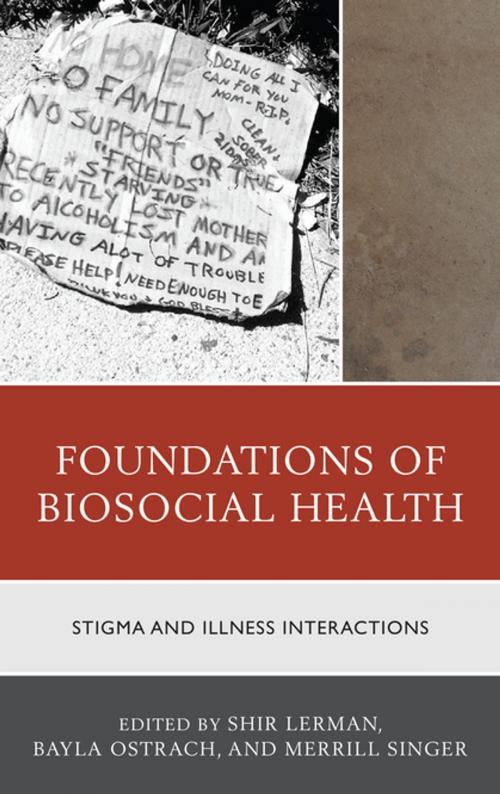Foundations of Biosocial Health
Stigma and Illness Interactions
Nonfiction, Social & Cultural Studies, Social Science, Anthropology, Health & Well Being, Psychology, Political Science| Author: | Nicholas Emard, Theodore Gideonse, Seung Yong Han, Harrison M. K. Maithya, Ruthanne Marcus, Gerald McKinley, Bayla Ostrach, Mary A. Ott, Elizabeth J. Pfeiffer, Merrill Singer, Alexandra Brewis, Sarah Trainer, Kara Wools-Kaloustian, Amber Wutich, James Ziegler, Shir Lerman Ginzburg | ISBN: | 9781498552127 |
| Publisher: | Lexington Books | Publication: | May 4, 2017 |
| Imprint: | Lexington Books | Language: | English |
| Author: | Nicholas Emard, Theodore Gideonse, Seung Yong Han, Harrison M. K. Maithya, Ruthanne Marcus, Gerald McKinley, Bayla Ostrach, Mary A. Ott, Elizabeth J. Pfeiffer, Merrill Singer, Alexandra Brewis, Sarah Trainer, Kara Wools-Kaloustian, Amber Wutich, James Ziegler, Shir Lerman Ginzburg |
| ISBN: | 9781498552127 |
| Publisher: | Lexington Books |
| Publication: | May 4, 2017 |
| Imprint: | Lexington Books |
| Language: | English |
The chapters in Foundations of Biosocial Health: Stigma and Illness Interactions, drawn primarily from medical anthropology, highlight the diverse ways in which various stigmatized health conditions interact with social inequalities and stigma to form syndemics. The authors delineate multiple examples of stigma-driven syndemics to demonstrate both the nature of disease interactions and how stigma contributes to, promotes, exacerbates, or perpetuates a syndemic. In so doing, the authors also address how stigma translates from a social condition to various biological conditions. The authors’ contributions cover a variety of topics, including HIV, substance use, obesity, depression, homelessness, poverty,and political oppression. This book is recommended for scholars of anthropology, sociology, psychology, political science, and public health.
The chapters in Foundations of Biosocial Health: Stigma and Illness Interactions, drawn primarily from medical anthropology, highlight the diverse ways in which various stigmatized health conditions interact with social inequalities and stigma to form syndemics. The authors delineate multiple examples of stigma-driven syndemics to demonstrate both the nature of disease interactions and how stigma contributes to, promotes, exacerbates, or perpetuates a syndemic. In so doing, the authors also address how stigma translates from a social condition to various biological conditions. The authors’ contributions cover a variety of topics, including HIV, substance use, obesity, depression, homelessness, poverty,and political oppression. This book is recommended for scholars of anthropology, sociology, psychology, political science, and public health.















